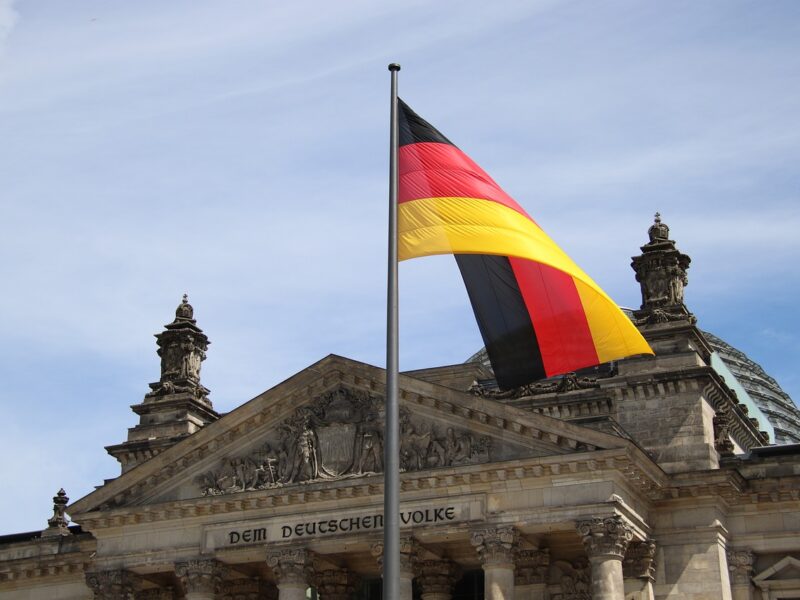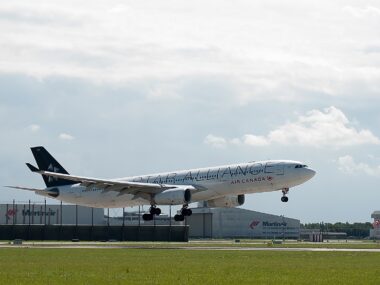Germany officially known as the Federal Republic of Germany is a country in Central Europe renowned for its thriving economy, innovative industries, and high standard of living. Over the years, there has been a surge in the number of foreigners who want to live and work in the country and one of the most sought-after goals for professionals working in Germany is obtaining a permanent work visa, which offers stability and the possibility of long-term residency.
High salaries, good working conditions and the wide range of opportunities for workers and professionals of different areas have lured a very high number of people to look up to these opportunities
On this page, we will cover everything you need to know about obtaining a permanent work visa in Germany, including the types of visas, eligibility requirements, the application process, and pathways to permanent residency.
GERMAN VISA SYSTEM: WHAT YOU NEED TO KNOW ABOUT IT
Germany’s visa system for non-EU citizens is designed to attract skilled workers who can fill gaps in the labor market.
The mode of issuing visas to EU and Non EU citizens is different. EU citizens and those of Iceland, Norway, Liechtenstein and Switzerland don’t need a visa to enter Germany for any purpose, due to the Schengen Agreement reached in 1985 among the majority of the European Union member states.
Non-EU and non-EEA nationals will need a visa to be eligible to work and live in Germany. In summary, those who do not meet the following conditions have to apply for w work visa to be eligible to live and work in the country:
- Nationals of one of the member states of the European Union, the European Economic Area and the European Free Trade Association.
- Applicants who are nationals of Australia, Canada, Israel, Japan, New Zealand, the United States of America or South Korea.
Germany basically issues three types of Long stay Employment Visa namely: General Employment visa, Special Employment Visa, and Self-Employed Visa.
The General employment visa is issued to those with vocational qualification or a concrete offer of a contract of employment. Specialist professionals are issued the Special Employment visa provided they have sufficient proof of funds.
In an era of digital revolution, self employment has become a norm and the German government can issue the Self-Employed visa to those who wish to work as freelancers in Germany or wish to start a business in Germany and have sufficient funds to do so.
Eligibility to Apply for a Germany Work Visa
To be eligible for a German work visa, applicants are expected to meet any of the following conditions:
The applicant must be a highly qualified foreigner, in particular: researchers with special technical knowledge or teaching personnel’s in prominent positions or scientific personnel in prominent positions.
- Intra-corporate transferees, in particular managers and specialists
- Letter of intent or contract offered to you by a company situated in Germany
- Health Insurance coverage
- Cover letter indicating the intent and purpose behind the application
HOW TO APPLY FOR GERMAN PERMANENT WORK VISA
Once you meet the eligibility requirements, you can apply for a Settlement Permit (permanent residency). Here’s a step-by-step guide to the application process:
- Gather the Necessary Documents
The first step to apply for a German Permanent work visa is to prepare all the necessary documents that will be required during the application phase. Some of the key documents include the following: valid passport, Proof of employment (employment contracts, salary slips) ,Proof of contributions to the social security system (pension insurance statements), Proof of financial stability (bank statements, tax returns), Proof of housing (rental agreement or property ownership documents), Proof of German language proficiency (A2 or B1 level certificate), and Health insurance documents.
- Submit Your Application
You need to submit your application to the German embassy in the region where you live. Booking an appointment is mandatory before proceeding to submit your application else it will be rejected.
- Attend an Interview
Upon submission of your application, you will be invited for an interview to discuss your application and provide additional information. The information provided during this phase will determine whether your application will be accepted or not.
- Pay the Application Fee
After the verification of your application, all the application form information will be entered into the online system of the German consulate and you will receive a printed copy of your application. Once you sign the form, you will be requested to pay the application fee which depends on the visa category.
Once the application has been completed, biometrics will be collected. During this process, applicants’ biometrics will be undergone.
WHERE CAN I APPLY FOR A GERMAN WORK VISA?
representative body of Germany in your country of residence responsible for visa admission. This could be one of the following
- The German embassy
- A German consulate
- A Visa Application Center
The German embassy/consulate is located in a neighboring country, in absence of German representative bodies in your country of residence. The embassy/consulate of another country located in your country of residence to which Germany has outsourced visa admission.
WHAT TO DO AFTER YOU ARRIVE IN GERMANY WITH A PERMANENT WORK VISA
Immediately, you arrive in Germany, the first step is to register your address with the German authorities and the deadline to do this is two weeks after your arrival. This can be done at a place close to your residence in the country.
Once you’re able to successfully register, apply for a German Employment Residence Permit but this should be after scheduling an appointment with the immigration authorities.
CONCLUSION
Germany offers excellent opportunities for skilled workers, and obtaining a permanent work visa can provide a stable and rewarding future in the country. The process starts with securing a temporary work visa, such as the EU Blue Card or a Work Visa for Qualified Professionals, followed by building your career in Germany. By meeting the eligibility requirements—such as continuous employment, financial stability, and language proficiency—you can apply for permanent residency and enjoy the many benefits of living and working in Germany indefinitely.





